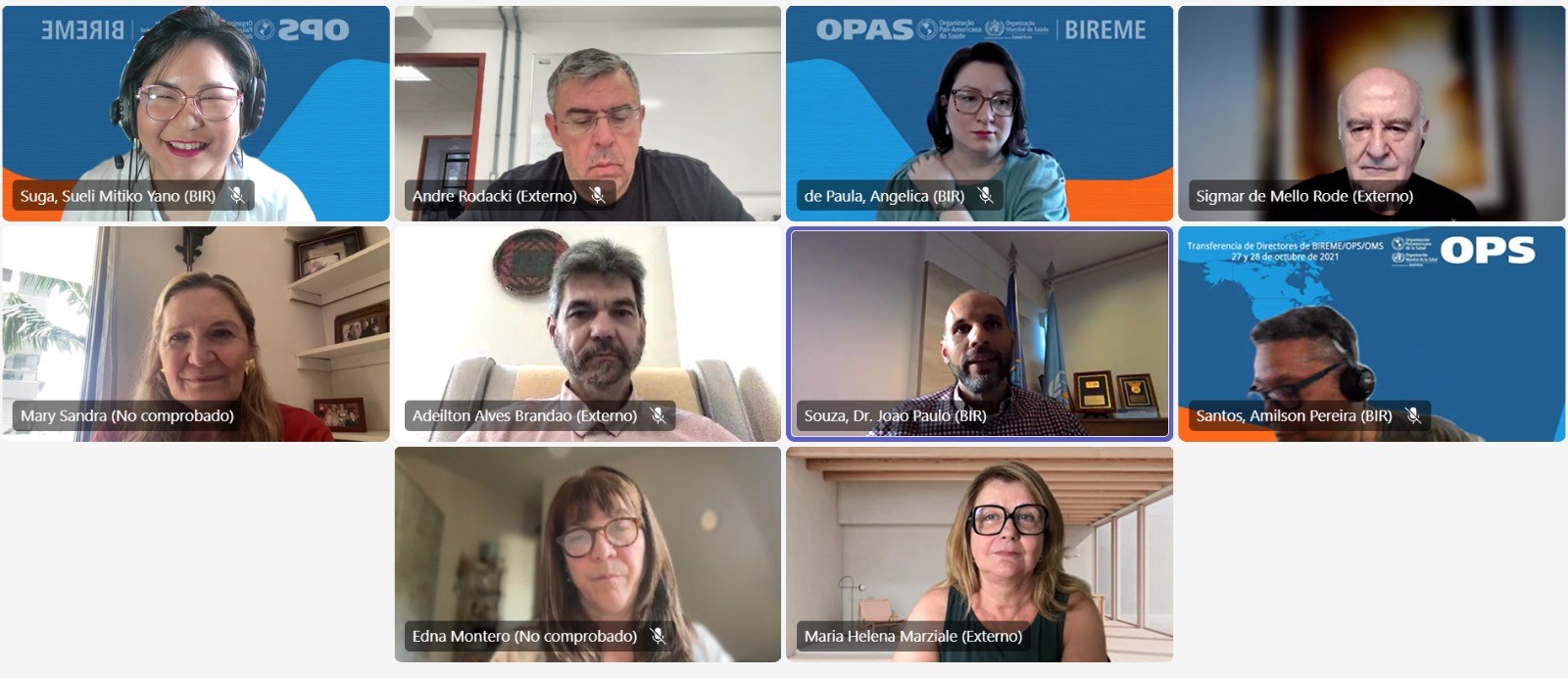Every year since 1999, BIREME/PAHO/WHO has carried out the LILACS Brazil Journal Evaluation and Selection Process, conducted to ensure the quality and transparency of the inclusion of new scientific journals in the LILACS database. In 2024, the 25th Evaluation Committee Meeting was held virtually, on November 1st, with the participation of expert members from six different areas of the health sciences, and a welcome from João Paulo Souza, Director of BIREME.
For the coordinator of the LILACS ecosystem, Sueli Mitiko Yano Suga, Supervisor of Referential Information Sources at BIREME, it was a very fruitful meeting, since “besides the decision on the indexing of the journals evaluated, important contributions were obtained for the selection criteria for the permanence of journals in the LILACS Brazil collection, which is now in public consultation”.

Evaluation Committee and Selection Process
The 25th Evaluation Process began in April 2024, with seventeen journals included since the pre-analysis stage in accordance with the LILACS criteria. Of these, twelve journals had documentation submitted to the evaluation platform. At the stage of compliance of submitted documentation and minimum submission criteria, five journals were kept in the process, one of which was approved according to automatic admission criteria because it had been approved for the SciELO Brazil collection.
As a result, the following journals were approved:
- Brazilian Journal of Transplantation – Brazilian Organ Transplant Association (ISSN 2764-1589)
- Perspectivas em Medicina Legal e Perícia Médica – Brazilian Association of Legal Medicine and Medical Forensics (ISSN 2526-0928)
- PSI UNISC – Graduate Program in Psychology of Universidade de Santa Cruz do Sul (ISSN 2527-1288)
In 2024, the following experts took part in the 25th Committee Meeting:
- André Luiz Félix Rodacki, Universidade Federal do Paraná – Physical Education area
- Sigmar de Mello Rode, Universidade Estadual Paulista Júlio de Mesquita Filho – Area of Dentistry
- Mary Sandra Carlotto, Universidade de Brasília – Psychology area
- Adeilton Alves Brandão, Fundação Oswaldo Cruz – Biomedical Sciences area
- Edna Frasson de Souza Montero, Universidade de São Paulo – Area of Clinical and Surgical Medicine
- Maria Helena Palucci Marziale, Universidade de São Paulo – Nursing area
Sueli Suga pointed out that the process of evaluating and selecting journals for the LILACS collections is decentralized, with the National Coordinating Centre being responsible for setting up the Committee and carrying out the evaluation process at local level. The 25th Meeting also marked the launch of the Public Consultation to update the criteria for the selection and retention of LILACS journals.
Public consultation: updating LILACS criteria
Throughout the month of November 2024, from the 1st to the 30th, two documents on the criteria for selecting and keeping journals in LILACS will be up for public consultation in order to receive comments and suggestions for improvement:
- LILACS Regional Criteria (Spanish) – https://bit.ly/cp_lilacs25_es
- LILACS Regional Criteria (Portuguese) – https://bit.ly/cp_lilacs25_pt
- LILACS Brazil Criteria (Portuguese) – https://bit.ly/cp_lilacs25_br
“The aim is to improve the guidelines and ensure that they meet the needs of the scientific and editorial community according to the local context, i.e. the national or thematic scientific scenario, in order to strengthen LILACS as a database with quality content and representative of Latin American and Caribbean scientific production”, emphasized Sueli Suga.
LILACS is the largest specialized health database in Latin America and the Caribbean, with free access to more than one million records of scientific and technical literature. Coordinated by BIREME, this database is regularly updated by a network of more than 600 institutions that ensure the quality and relevance of the records. It is in this context that the LILACS Journal Evaluation and Selection Committee operates, made up of specialists from different areas of health, who are responsible for evaluating the compliance of journals with LILACS’ selection and permanence criteria.
The journal evaluation and selection activities are part of Term of Cooperation 93 between PAHO and Brazil’s Ministry of Health, highlighting BIREME’s commitment to the ongoing quality of LILACS. As a result, the database provides free and open access to scientific content that supports public health policies and impactful research in the region.
To find out more about LILACS and the criteria for selecting journals, visit LILACS https://lilacs.bvsalud.org/.